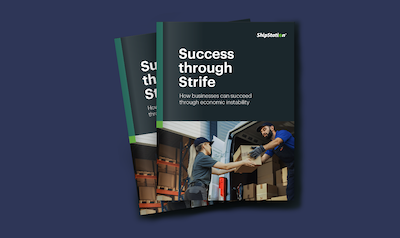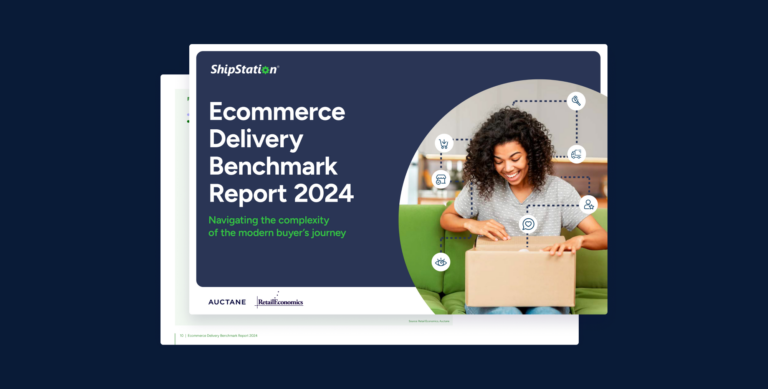Retailers: Here’s how to navigate rising ecommerce costs and tougher times

Depending on where you look, we’re either on our way to a recession, or it’s already started. Regardless, as a small business owner or someone who works in a nimble retailer, navigating rising ecommerce costs and interest rates, inflation and supply chain pressures is challenging.
While recessions can be scary, the first thing to remember is not to panic. Preparation is key to understanding your business’s position going into recession and what action to take to overcome challenges you may face.
To help you prepare, the ecommerce experts at ShipStation come together to discuss what small and medium-sized businesses can do to ensure they weather this economic storm.
Evaluate Your Business
This is a major hindrance that first-time business owners often don’t think about until a potential bottleneck is already upon them. So, you’ve got a list of well-vetter suppliers Before deciding on business changes, it’s vital for you to get a full picture of business performance. Knowing where your money is going will help you better plan for the recession.
Here are a few things you should consider:
- What is the state of your accounts receivable? Are there outstanding, unpaid invoices or many customers on credit accounts?
- What is your stock situation? Do you have a lot of excess stock just sitting around gathering dust?
- What is the state of your cashflow? Do you have a cash overflow? If so, how should you use it?
Analysing your cash and stock could provide valuable resources in the months and years ahead. We discuss in our latest eBook why answering these questions is vital to your business both during a recession as well as when times are good.
Cutting ecommerce Costs: Running a Lean Business
If you’re just starting out as a small business that takes custom orders, then you could Effective cost management is part and parcel of running a business during tough economic times. Knowing what to spend on without the decision impacting your business negatively is important. The ecommerce experts at ShipStation understand what it takes to run a business and where you can reduce ecommerce costs whilst maintaining the same service levels you did before an economic downturn.
Label Rates
As a small business owner, label rates can quickly eat away at your budget. If you don’t have arrangements in place with couriers, you could be spending far more than you otherwise would. ShipStation can help.
ShipStation can help reduce the amount your business is paying on label rates and help streamline your business because, let’s be honest, time is money. Choosing ShipStation’s order fulfilment and delivery software strengthens your bottom line through:
- An easy-to-use dashboard with all your couriers in one place
- Assigning couriers to specific products (i.e. weight, worth or size)
- Discounted shipping rates with major carriers (or use your own rates)
- Real-time shipping rates to save you the most money
- Batch labels for big time savings
- Automated order fulfilment – creating efficiency, boosting productivity
Whilst your business will be saving money on its label rates, it doesn’t lead to a reduction in services or service quality. Ideal for maintaining your brand reputation and keeping customers happy.
Returns
Pre-recession and especially during the pandemic, many ecommerce retailers went the route of free returns. Customers were able to purchase different colours and sizes and easily return items. It has become a customer expectation but is creating financial pressure as businesses feel the squeeze of recession.
Businesses are approaching free returns in two ways. Some major retailers, like Zara and Next, have done away with their free return policies. Other businesses plan on keeping free returns forever. So how do you decide what is right for your business?
During your business analysis, look at your annual return figures. How many packages are returned, and what is the impact on your bottom line? Is it significant enough to combat the negative customer sentiment around paid returns?
Removal of free returns could impact your business sentiment and, inevitably, your business post-recession and requires careful consideration.
Protecting Your Business for the Future
As businesses keep their businesses lean, often marketing and longer-term initiatives are the first to feel the pinch. We’d advise strongly against this. Marketing is your connection with your customers; even if they aren’t purchasing it keeps you at the front of their minds when they decide to make a purchase.
We suggest maintaining social media, email and newsletter communication with customers as well as becoming more targeted with paid advertising. Be transparent about delivery delays and supply chain issues and continue building your brand story. It will pay off post-recession when other businesses have lost that connection to customers; there will be plenty who will remember hearing from you.
ShipStation Can Help
We understand how worrying a recession can be, especially for retailers, but it isn’t all doom and gloom. Just like past recessions, life will return to normal.
Proactive planning can help change your business through the recession, enabling you to be successful long after it’s ended. ShipStation helps facilitate that by:
- Automatically importing orders
- Connecting selling channels easily
- Integrating with over 100 carts and marketplaces
- Managing all couriers in one easy-to-use hub
- Setting up custom workflows and alerts
- Providing self-service tracking and returns
We help streamline your order fulfilment and delivery process through automation, enabling your business to be more efficient and less time-consuming. Learn more about how to survive a recession as an eCommerce retailer in our new eBook, Success Through Strife.


